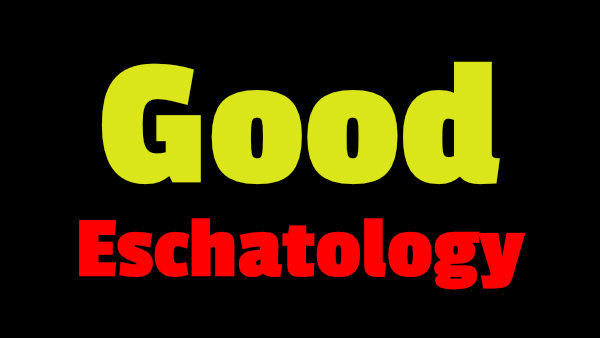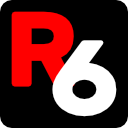Revelation Six - When The Four Horsemen Ride Last time we looked at four of the twenty two verses that use the phrase 'Day of the Lord'. One of those (Isaiah 2:12) is clearly about Armageddon and the Millennium that follows. Isaiah 13:6 and 13:9 are talking about future destruction of Babylon, but not in the context of Armageddon. And Jeremiah 46:10 was about Nebuchadnezzar's conquest of Egypt, Libya and Ethiopia. That leaves us with eighteen more verses to look at. That's still a lot, but each of those passages has something to say to us about The Day of the Lord. This time, we'll be looking at Ezekiel and Joel. ———————————— Keep this ministry alive with a donation. Subscribe for free to Revelation Six and receive my articles in your inbox: And, read my two books: I created five Android Apps that will help you read through the Bible in a Year. You can find them here: https://revelationsix.com/android-apps/ If you miss my rantings about geopolitics, idiocy, resource collapse and incompetent globalism, follow me on Twitter. ———————————— The Day Of The Lord - Part TwoRemember that the Hebrew Scriptures are just as relevant as the New Testament. All of the Bible is the word of God. Remember that when the Disciples went out, sharing the gospel - they didn't have a Bible that included the 'New Testament'. They only had the Hebrew books that we often call the Old Testament. Furthermore, most of what we know about the Last Days, comes from the Hebrew Scriptures. And, I think that we have done ourselves a great disservice by ignoring what the prophets had to say. And, let's not forget that God demonstrates who He is by what He says in the first 24 books of the Bible. So, let's look at Ezekiel and Joel. Ezekiel 13
Even though Ezekiel 13 is about the corruption of Israel before they were sent into exile, this hits awfully close to home for us today:
When I look at our churches, I am horrified by the corruption that I see. Preachers aren't giving sermons from the Bible. They're preaching from their own heart. They are building seeker-friendly churches without a foundation in truth (untempered morter). And, they say to the wicked that they don't need to repent and turn from their sins. God brought the Day of the Lord upon Israel for this. And that means that He will also bring the Day of the Lord upon us for doing exactly the same thing. We talk about the Day of the Lord at the Battle of Armageddon, but the Day of the Lord will come first to our unrighteous churches. May God have mercy upon us and grant us repentance before His righteous judgment comes upon us. TRANSLATION NOTE: Every translation of verse 20 gets gets it wrong, except the Young's Literal Translation (which often gets other words wrong). The word לפרחות (leh-for-chote, 'ch' as in Bach) means to blossom or to flourish. It does not mean to fly or anything about birds. This is a really bad mistake for the KJV and other translations to make. Every Friday, in Israel, you will see men buying פרחים (prah-cheem, flowers) for shabbat. I do not understand how Bible translators could be this bad. So, we can say that the 'Day of the Lord' in Ezekiel 13:5 has already been fulfilled when God judged Israel for her sins. Ezekiel 30
Okay, so this is against the heathen, but let's check to see if it is in the future:
This is exactly like the Day of the Lord that we saw in Jeremiah 46:10. That also was against Egypt, Ethiopia and Libya. And, God was using Nebuchadnezzar to judge those nations. So, this is also a Day of the Lord that has already happened. Joel
These five references in such a short book seem to range from the past through to the future. And, the dividing point appears to be here:
So it appears that the references to the Day of the Lord chapter one and the first part of chapter 2 are all about this great plague of locusts. But, the reference to Joel 2:31 is talking about something completely different. In fact, let's allow Peter to tell us what Joel 2:31 is in reference to. But, before I let Peter speak, let's set the stage a bit. This was the day of Pentecost after Jesus died and rose again, and the Holy Spirit came upon all who had gathered together. And, everyone began to praise God in languages of those from foreign lands who were watching. And, some began to mock them. This is where Peter steps in and says in Acts 2:
The coming of Jesus, His sacrifice on the Cross and His Resurrection were all part of the Day of the Lord. But, the Day of the Lord did not end there. It also included the Day of Pentecost, and the destruction of Jerusalem almost 40 years later. And, it was recorded that while Jesus was on the Cross, this happened:
That was NOT a solar eclipse. They don't last three hours. Whatever that darkness was, it had to have been something miraculous. Joel - The Future Day Of The LordThen there's the last reference to the Day of the Lord in Joel:
Joel 3 provides us with a paradox.
Verse one tells us about the Return of Israel, and the end of the chapter speaks of Israel's Redemption. And, those of you who know that Ezekiel 38 and 39 refer to Israel's Redemption at the time of the coming of Gog and Magog. And, this is where things get difficult. Joel 3:2 refers to ALL NATIONS, while Ezekiel 38 refers to most of them. What's the difference? Well, turn to Genesis 10 and Ezekiel 38. In Genesis 10 you have a list of all the main descendants of Noah. In Ezekiel 38, we have a list of the massive army put together by some guy named Gog. Both lists are very similar with some exceptions:
Are those exceptions small enough to classify the rest as 'All Nations'? Oh, and there's one other thing. God says that He will bring them down to the Valley of Jehoshaphat. (And yeah, that Wikipedia link is actually pretty good.) Where is the Valley of Jehoshaphat? Well, in the 4th century, the very first guide book for tourists... err ...pilgrims, said that it was in the Kidron Valley. And, a bunch of other dead guys said much the same thing. In Israel, we have a name for such things, 'tour guide stories'. They're always fun tales that are very entertaining, but almost always dead wrong. What does the Bible say? Well, when Judah was being invaded by a huge army made up of Ammon, Moab and some others, King Jehoshaphat asked the LORD for help. God said that He would take care of this, and that everyone should stand on the hill of Tekoa. When this vast army marched through the valley leading from the Hebron area towards Jerusalem, God drove that army insane, and they killed each other. You can read all this in 2 Corinthians 20. This army was carrying so much stuff, that it took four days to haul it all off. When they were done looting this army and burying all the dead bodies, King Jehoshaphat called the place the Valley of Berachah, or Valley of Blessing. And, we know where this valley is. And, it's the perfect place for any army to march through, if you want to attack Jerusalem - all other invasion routes are narrow, hard to get through and easy to defend. Here's the Google Map location: https://maps.app.goo.gl/2x92NAYp7wcmu8fw8 And, here's another source that offers a few other options: https://www.openbible.info/geo/ancient/a71f834/valley-of-beracah I'm sorry, but I'm not going to believe a tour guide story about where the Valley of Jehoshaphat is. The Valley of Berachah makes more sense and would certainly hold a large army, while this Kidron Valley cannot. Furthermore, we have a story from the Bible that fits what we are looking for. However, this is not the only place where Jehoshaphat was involved in a battle, but it's the only place where ONLY Jehoshaphat was involved. All the other battles involved other kings. The Battle Of Gog And Magog?The next question is: Is this really the Battle of Gog and Magog? Here I have gone and spent all of this time talking in terms of Gog and Magog. But, there are two verses that seem to point in two different directions:
And:
Verse 16 would seem to tell us that this is the Second Coming, where the Battle of Armageddon begins at Jerusalem (Zechariah 14). But the Millennium comes after that, and during the Millennium, Egypt will not be a desolation. And, Isaiah 19 speaks of great desolation and upheaval. Then to add just a bit more confusion, Joel ends with this verse:
This could either mean that the Lord dwells at Zion because Israel has accepted Jesus as their Lord and Savior, or because this is the Millennium and He is ruling and reigning from Jerusalem. Also, I'm used to thinking in terms of Gog and Magog AND Armageddon being fought in the Jezreel Valley, which a large number of scriptures confirm. But, we also know that there are references to fighting in Judea - which is where the Valley of Jehoshaphat would be. Because of the first verse of Joel 3, my instinct is to say that this is referring to the Battle of Gog and Magog, during which Israel recognizes Jesus as their Lord and Savior. And taking this further, it would seem to confirm a significant amount of time between the Redemption of Israel and the coming of the Antichrist. At the very least, I hope that I've laid out the question with enough clarity for you to ponder it yourself. Pray for the peace of Jerusalem. ———————————— My people are destroyed for lack of knowledge. ———————————— Keep this ministry alive with a donation. Subscribe for free to Revelation Six and receive my articles in your inbox: And, read my two books: I created five Android Apps that will help you read through the Bible in a Year. You can find them here: https://revelationsix.com/android-apps/ If you miss my rantings about geopolitics, idiocy, resource collapse and incompetent globalism, follow me on Twitter. ———————————— |


